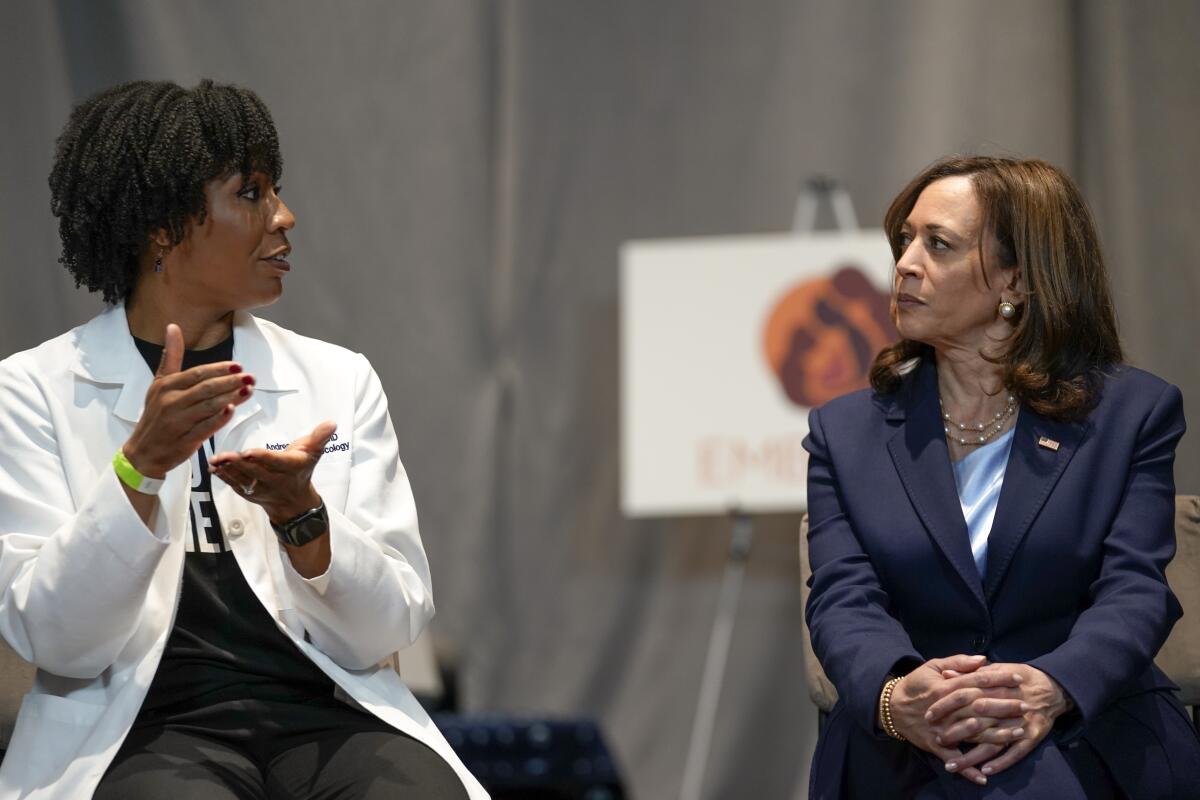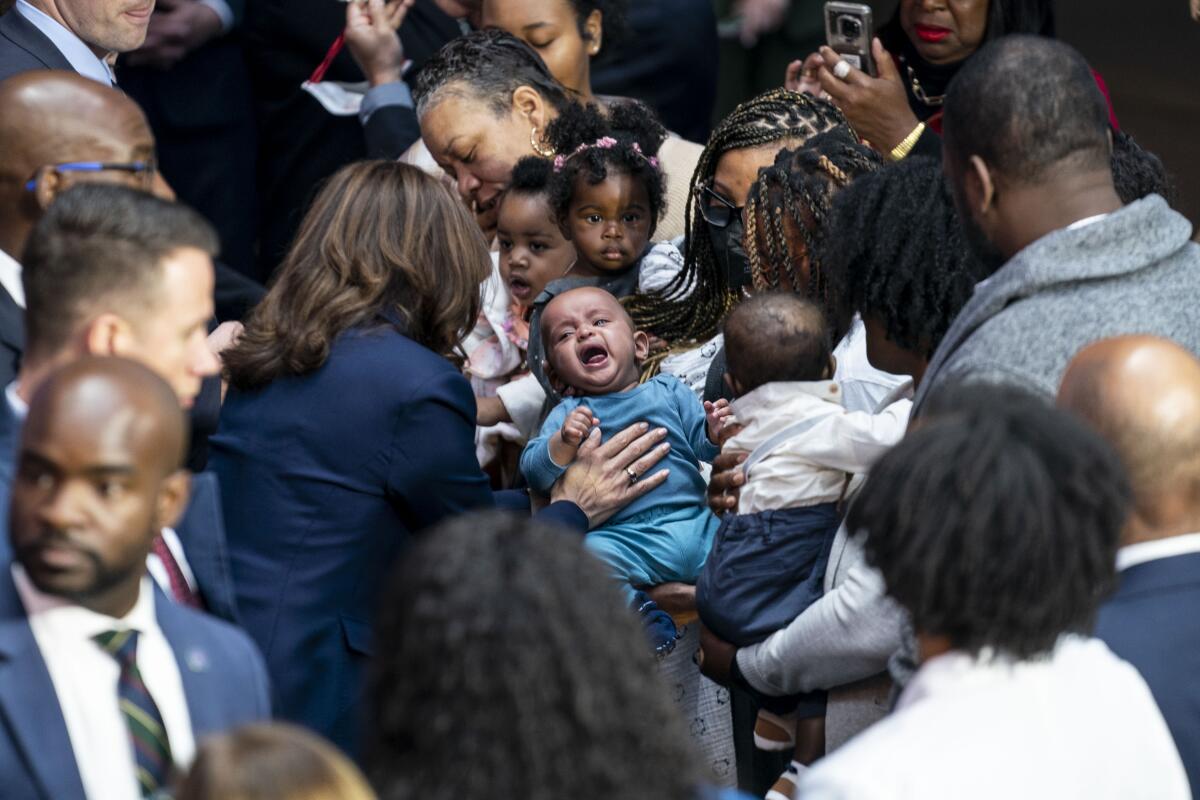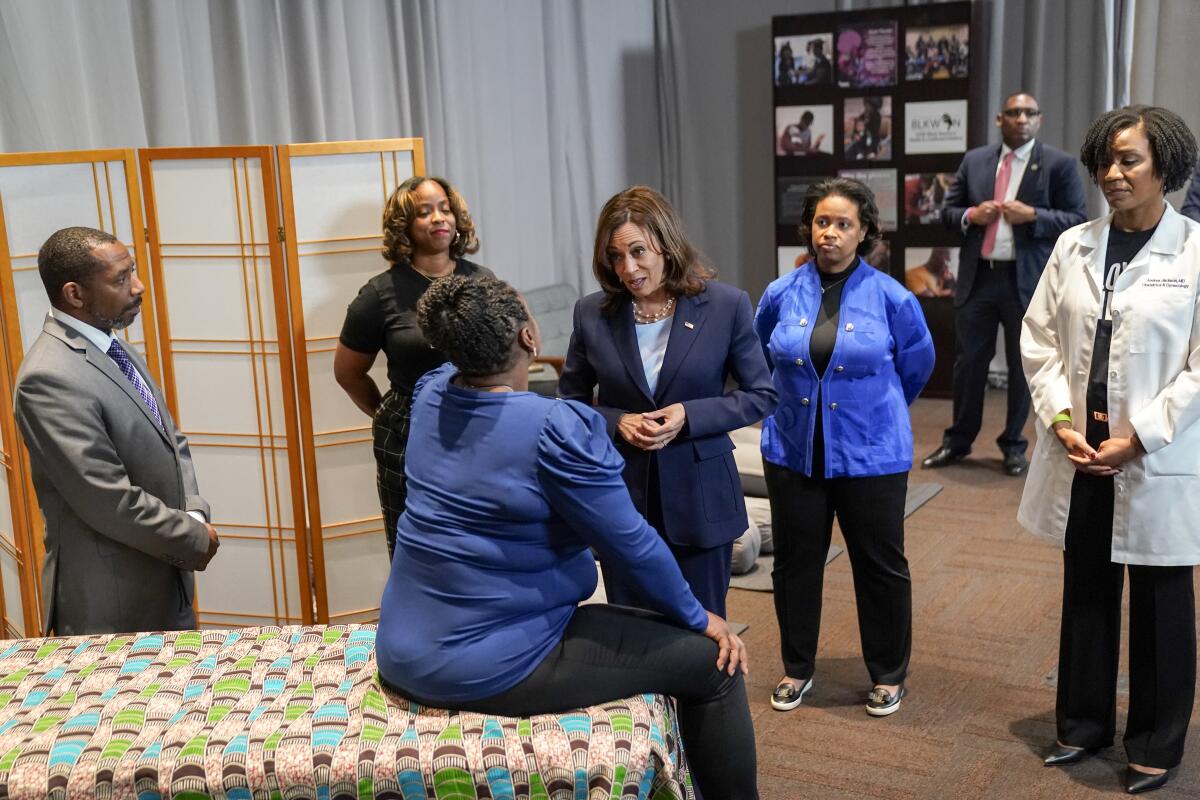Vice President Kamala Harris spotlights maternal health during Bay Area homecoming

- Share via
SAN FRANCISCO — The U.S. is facing a maternal health crisis, Vice President Kamala Harris declared Thursday in remarks at UC San Francisco as she wound down a weeklong trip to her home state.
“Women in our nation are dying at a higher rate for pregnancy-related causes than in any other wealthy and more developed nations in our world,” she told a crowd of expectant mothers and healthcare workers at the university’s William J. Rutter Center.
Harris pointed out that mortality rates are higher for women of color. Black women are three times more likely to die from pregnancy-related complications while Indigenous women are more than twice as likely to die, according to the U.S. Centers for Disease Control and Prevention. Women who live in rural areas with little access to healthcare are 60% more likely to die from complications from pregnancy, Harris noted.
“Maternal mortality is not only a healthcare issue, it is also a housing issue, a transportation issue, an environmental issue,” she said, noting that women who don’t have access to safe housing or hospital checkups are at greater risk of adverse outcomes.
The speech came after Harris toured UC San Francisco and met with families expecting children and healthcare professionals about the university’s clinical program for Black mothers.
Centers for Medicare and Medicaid Services Administrator Chiquita Brooks-LaSure, Sen. Dianne Feinstein (D-Calif.), Lt. Gov. Eleni Kounalakis and San Francisco Mayor London Breed were among those who attended the event.

“Women are the pillars of so many families and so many communities and when women then receive the care they need, by extension it makes families and communities stronger,” Harris said.
Harris, who has been the face of the Biden administration’s efforts to raise awareness on the issue, has advocated throughout her political career to improve healthcare for expectant mothers.
The administration has taken several actions on maternal healthcare including encouraging states to expand Medicaid postpartum coverage from two months to up to a year and increasing funding for doulas. The White House also sought money for maternal health in its sweeping climate and social spending bill, which has since been shelved.
As senator, Harris sponsored bills that would provide incentives for improving maternal outcomes and training doctors about implicit racial bias in healthcare, which contributes to higher mortality rates for women of color during pregnancy and delivery. Last week, she held the administration’s first Cabinet-level meeting on efforts to improve outcomes for pregnant women.
“This is not something that she’s just talked about. This is something that she’s dedicated time and energy and personal and political capital to investing in,” said Dr. Nadine Burke Harris, former surgeon general of California, whose work with Harris on health initiatives goes back nearly 15 years. Burke Harris has no relation to the vice president.

Before Harris spoke, a White House official confirmed the vice president’s Chief of Staff Tina Flournoy would leave the administration, the latest in a series of aides who have left her team in recent months. News of her exit was first reported by the Washington Post.
Flournoy, the highest-ranking official to leave amid the staff shake-up in Harris’ office, will be replaced by Lorraine Voles, who has advised the vice president since last summer, the official said. Voles served as communications director to former Vice President Al Gore and as an advisor to Hillary Clinton in 2008.
The vice president earlier spent the week in Los Angeles with Second Gentleman Doug Emhoff at their Brentwood home. She visited the Vandenberg Space Force Base on Monday before speaking at an L.A. fundraiser, her second such event in the last two weeks. She will spend the weekend in L.A. before returning to Washington, D.C., on Monday.
Times staff writer Melanie Mason contributed to this report.
More to Read
Get the L.A. Times Politics newsletter
Deeply reported insights into legislation, politics and policy from Sacramento, Washington and beyond. In your inbox twice per week.
You may occasionally receive promotional content from the Los Angeles Times.











